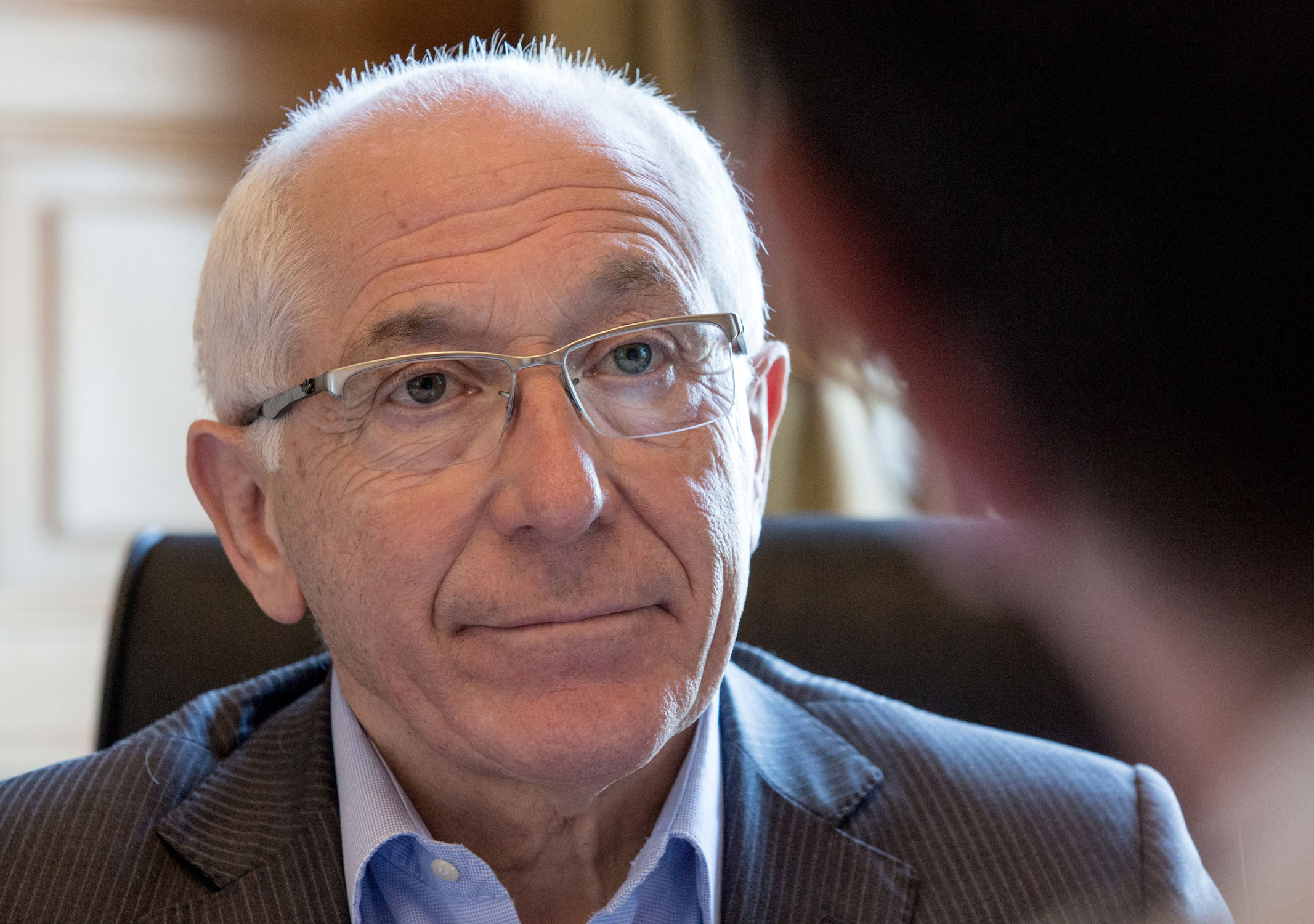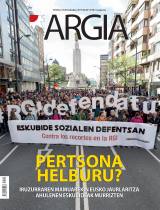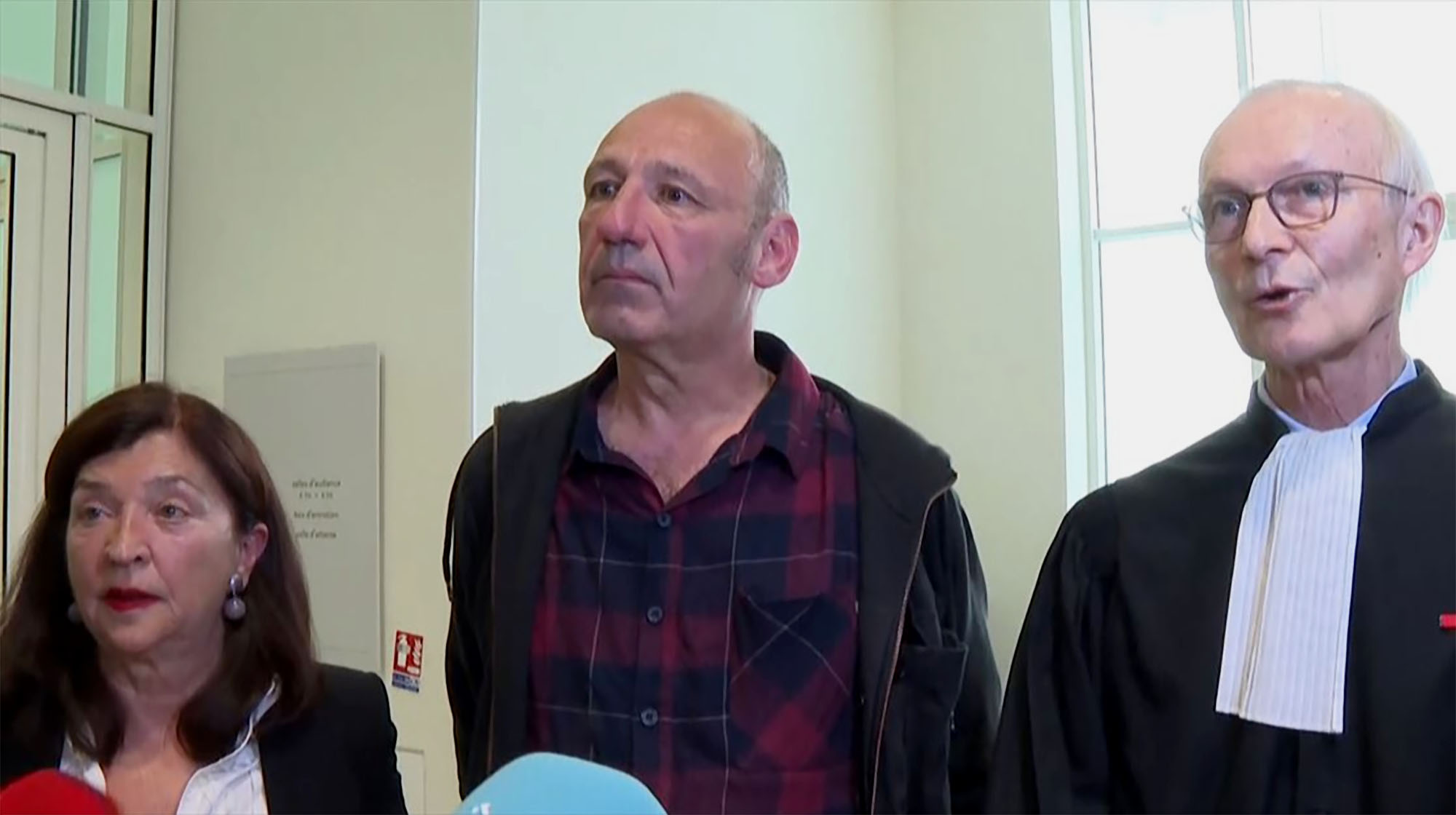"I hope that the day after 8 April will calm down and that the conversation will be synonymous."
- The President of the Commonwealth of the Basque Country, Jean-René Etchegaray, said that, on the day following ETA's disarmament, yes or no, the states must cease to maintain the blocking trend for dialogue. He will be in the disarmament of ETA because, he says, it is a fundamental step towards moving the peace process forward. It invites everyone to attend.

He was in the forum “Disarmament, at the service of the peace process” in Biarritz. “The risk to be assumed is collective and the moral responsibility of each is to be on April 8,” he said. Many say they respond with optimism to the call of the craftsmen of peace. What do you say about this movement?
The truth is, this movement doesn't surprise me. In Euskal Herria we have this culture, we have the capacity to mobilize ourselves in the face of the fundamental challenges for Euskal Herria. At this point in time, when I consider it historic, this is also happening.
At the forum you said that they were going to be present in the disarmament of the ETA structure that is going to take place on 8 April. What feeling do you have when you look at this danger?
Determination and conscience, a genuine political conscience of our people. I have said and I repeat that the blockade of the French and Spanish States, those who were involved in the Luhuso initiative, took a very personal risk. It's time for that risk to be shared, for it to be taken collectively. If the states are not there on 8 April, there will be society.
Do you think the French State can move?
It seems to me that the lines are moving and I am glad. I spoke to the prime minister of France and I can say that he has opened the door half way. For some it is not enough. However, the French Minister, Bernard Cazeneuve, has shown more interest than interest in trying to imagine ways that might exist for the French State to express its willingness to participate in the process. The matter is not over, we are not yet 8 April and the following days, until the day before, things can happen or change. Otherwise, 8 April will be a mobilisation of voters and civil society.
Of the elected, of civil society and of the institutions. Or can we not ensure the participation of the latter?
Yes, it is possible. But when I mention the electorate, I mean the institutions, because they will be there personally, but in the end, also as voters or members of the Single Commonwealth of Iparralde.
A participant in the Forum on Disarmament said that States follow a trend of the past, even if the current context is radically different. Do you think that the day after 8 April they will change trend?
We want to translate a page with that day, more than that, we want to change the book. We have been in a crisis situation since the 1960s, although in 2011 ETA’s weapons have been silent. However, we have not yet returned the conflict sheet and that is our objective. We want to be in a phase of demilitarisation, because the disarmament of ETA is that, that the sheet of armed conflict be returned. Therefore, 8 April will be a fundamental step towards making progress in the peace process. Some are calling for the dissolution of ETA, but in view of disarmament it may be thought that this will also happen. Seeing that since 2011 weapons have not been used, I think we can look with a plausibility at the commitment made by the organization at the time.
So do you think the states are going to change trend?
I cannot judge the French State because at this time when we expect something from him, we need the ability to understand his arguments. In explaining its position, the State has taken over the dignity of the discourse of the rule of law. It is quite normal that the State intends to demonstrate authority and warn of the prevalence of the rule of law. But what we are saying is that it can also be in the logic of the rule of law by participating in the process of demilitarisation of ETA and in the dissolution of the arsenals. I have read in the Spanish media that the Spanish State is not going to impede the disarmament of ETA; we have the same position on the part of the French State. We therefore have no reason not to reach a consensus on this point.
Concerns about technical conditions predominate.
Since 2011, the International Verification Commission has been working on this dossier on stockpile destruction. Once this assembly has been held, we have elements that allow us to take this step objectively and that should, in general, be ensured by the states. But there too, what happens is that states do not want to know and approve the International Verification Commission (ICC) so far. Today, I say – it seems – that states are on a tendency to know the value of the work carried out by the International Verification Commission.
In addition
to reassuring States, there is also a need for technical conditions to reassure the peace-keepers who are organizing on 8 April. Among other things, it will ensure that there will be no arrest.
Many people must be assured. Of course, the victims. This securing of victims is a very important step towards reconciliation. Reconciliation is the central element of transitional justice. Prisoners and their relatives have been very emotional, and of course, this is a subject to be taken into account. Obviously, as you say, there is also the question of conditions on the relocation of arms. Some of the weapons are in private places. The condition for the State to be able to answer these questions is that it be linked to dialogue.
How should it be on 8 April?
I hope to relax the day after 8 April and, in the end, maintain the synonymous conversation. We want dialogue because without it reconciliation is not possible. I insist that dialogue and reconciliation are not contradictory to the rule of law, but can be done in the legal framework. On the other hand, we will also have to explain from that point on how we envision justice. Ending the conflict that has taken place since the 1960s is not easy; it cannot be resolved as a crime of common law. We have people, victims of a really hard conflict, on both sides. That is why we will have to use the mechanisms and principles that are part of transitional justice.
You stressed in the Peace Forum “the need for the spirit revolution”.
Yes, because reconciliation requires our conscience to interrogate us at different levels. This element is valid for everyone: for those who have their conscience and body marked by conflict, as well as for citizens like me, that is, for those who until now were mostly in observer status and now we want to be agents of the peace process. The construction of the peace process also calls for citizens ' awareness and citizen participation.
Baiona will host ETA’s act of delivery of weapons. Important and historic moment. As a mayor, what do you say?
As the capital of Ipar Euskal Herria, Baiona will play its role. We must be humble in this matter. Once again, I call on everyone to approach Baiona on 8 April. To all, including the French State: I hope that we will find a solution and that the President and Prime Ministers of France will be part of 8 April. This perspective still does not rule it out.
Josu Urrutikoetxearen aurka bi auzi iragan behar dira aste huntan Pariseko auzitegi korrekzionalean. Biak ere ETA talde armatuko kide izateagatik dira, baina mementu desberdinetan.
Astelehen eta astearte honetan Parisen epaitzen ari dira David Pla eta Iratxe Sorzabal. ETAko kide eta ordezkari izatea, armak eta dokumentu faltsuak eta propaganda materiala izatea leporatzen diete.

























